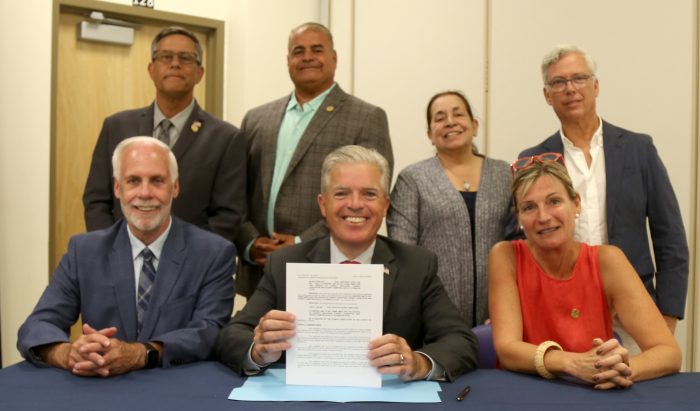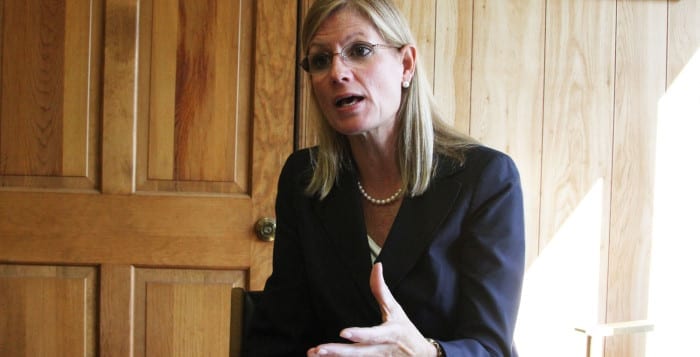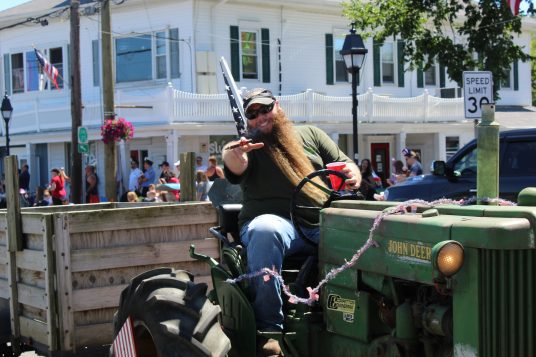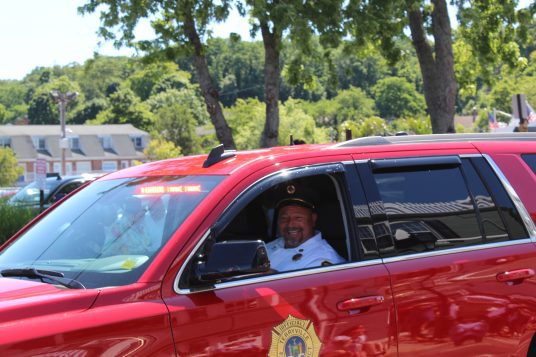County Executive Steve Bellone (D) was joined by several county legislators on Tuesday, June 13, at the H. Lee Dennison Building in Hauppauge, signing legislation that will fortify 12-year term limits for county offices.
Although term limits have existed in Suffolk County since 1993, the original statute was ambiguous. This new law, which was passed unanimously by the county Legislature last month, will cement 12-year terms for the offices of executive, legislator and comptroller.
Bellone considered this a much-needed measure that has received “overwhelming support” from the public and that reaffirms the original intent of the 1993 law.
“People really believe and understand that there is a value in turning over the people who are in office, that after a period of years — 12 years in this case — it’s time to give someone else an opportunity,” he said. “If there is a time limit in office, there’s more likely to be a focus on what’s in the interest of people rather than maintaining themselves in that office.”
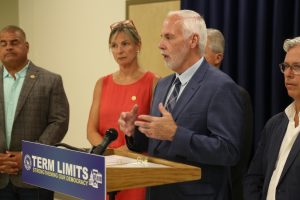
The 1993 law was poorly written, offering a loophole for those eager to circumvent its legislative intent, allowing officials to bypass its 12-year cap after a break in service. Bellone said this new law closes that loophole, establishing a fixed-term limit of 12 total years for each respective office.
“This Legislature has made it clear in this action today that they want to limit government, that they want to limit the time that someone can serve,” the county executive said. “Our experience here in Suffolk County is that that is absolutely a good thing.”
Presiding Officer Kevin McCaffrey (R-Lindenhurst) shared why this law will benefit voters. By creating more turnover in county government, the term limits will make room for new blood and fresh ideas.
“I’ve served in the Legislature for a little bit over eight years now,” he said. “I have seen some come and go and said, ‘I hate to see them go.’ But you know what? Someone takes their place and we have an input of different ideas and different personalities, and I think it’s been positive.”

Legislator Stephanie Bontempi (R-Centerport) sponsored this legislation. Elected for the first time in 2021, Bontempi views the term limits as a motivating influence, creating a fixed window of time for her to deliver results for her constituents.
“There will be no more sitting idly, languishing over decisions for decades,” she said. “I want to actually produce results.” The legislator added, “It just simply is good government — new ideas, new candidates.”
The law will make one final pit stop before it is formally enacted. County voters will weigh in on the matter in a referendum this November. Both the county executive and the legislators present urged Suffolk County residents to ratify this legislation.

